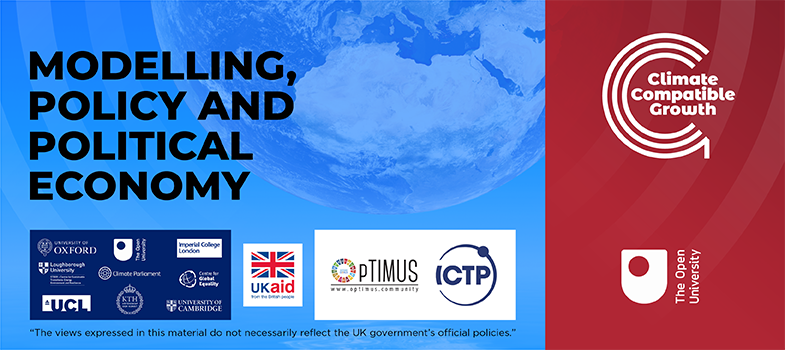Modelling, Policy and Political economy
Welcome to this e-learning course on systems modelling, policy and political economy (MPPE). The course will provide basic knowledge on the relationship between energy modelling and policymaking.
The course covers the policymaking process, the role of modelling in policymaking, and the complex relationship between economic, social, and political considerations that shape energy policies. After discussing the importance of understanding context and political dynamics, the course introduces the concept of political economy analysis (PEA). It explores the different methods and tools associated with PEA and how it can be applied at various phases of a modelling process.
The course also outlines practical steps modellers can take to develop effective communication strategies and link modelling results to policy action. The course aims to introduce modellers to an operational PEA framework. Thus, it is meant for preliminary training and designed to support modellers develop an understanding of the policy and political context they work in.
This is the April 2023 presentation of the course.



